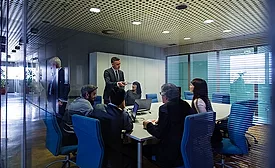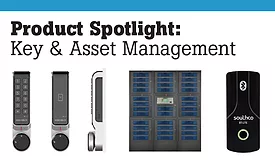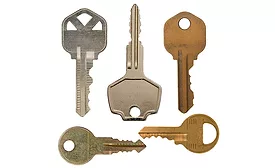Home » Keywords: » key control
Items Tagged with 'key control'
ARTICLES
Electronic Access Control Tailors Security Protocols, Boosts User-Friendliness
Facilities of all stripes, ranging from churches and school districts, to healthcare centers to manufacturing plants, continue to move from hard keys to electronic access, or to upgrade their existing electronic access systems.
January 1, 2017
Migrating from Keys: It’s All in the Journey
When “Do Not Duplicate” is not working as a key control strategy, perhaps it’s time to consider switching to electronic access control solutions.
November 5, 2013
Sign-up to receive top management & result-driven techniques in the industry.
Join over 20,000+ industry leaders who receive our premium content.
SIGN UP TODAY!Copyright ©2026. All Rights Reserved BNP Media.
Design, CMS, Hosting & Web Development :: ePublishing




